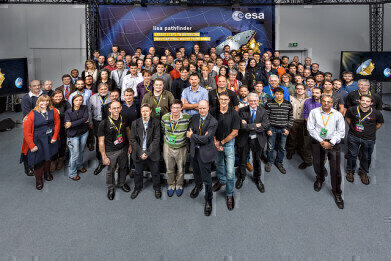News
What is LISA Pathfinder's Mission?
Dec 11 2015
Space science has developed in leaps and bounds since man first landed on the moon back in 1969. While Neil Armstrong and Buzz Aldrin went down in history, today they’re outperformed by a continuous flow of exciting new developments. The latest “giant leap for mankind” comes in the form of LISA Pathfinder. Described by the European Space Agency (ESA) as “the most perfect fundamental physics laboratory ever put into space,” the ultra-high tech spacecraft is on-track to uncover the mysteries of gravity.
The cutting edge technology is the first of its kind, designed to actively “listen” to the universe using Einstein’s general theory of relativity. It’s a wild concept, but according to the ESA prospects of success are positive.
LISA takes to the skies
Early this month the agency made history when it launched the next generation spacecraft from Kourou, French Guiana. The December 2 take-off date was no coincidence, marking the 100th anniversary of Albert Einstein’s general theory of relativity. Using his world famous theory, LISA Pathfinder is on a pioneering mission to study the universe in more detail than has ever before been possible. Should the mission go to plan, astronomers will be armed with a brand new sixth sense.
Tuning in to intergalactic conversations
Up until now all the information astronomers have about the universe has been derived from light sources such as radio waves and ultraviolet radiation. The ability to “listen” to the universe will allow space scientists to detect minuscule intergalactic ripples that could kick off extraordinary studies of exploding stars, colliding black holes and other celestial objects.
So how will the LISA Pathfinder achieve such a feat? The craft is equipped with a system of lasers developed by the University of Glasgow. These will track movements down to a trillionth of a metre, thus allowing the craft to generate an infinitesimal internal gravitational force of just one-tenth of a billionth of Earth’s gravity.
“The key feature about LISA Pathfinder is the precision with which it can sense and control its movement,” explains Ralph Cordy of Airbus Defence and Space, the manufacturer that constructed the spacecraft.
Want to know more about how light shapes the face of contemporary science? ‘The Power of Spectroscopy – Moving Out of the Lab to Resolve Production and Processing Challenges’ explores how the field is used to make observations about chemical composition and characteristics, as well as fast-track advancements in electro-optics, high-speed array detectors, inexpensive optical fibres, powerful computers and other next generation equipment.
Image via Flickr Creative Commons. Credits: European Space Agency
Digital Edition
Lab Asia Dec 2025
December 2025
Chromatography Articles- Cutting-edge sample preparation tools help laboratories to stay ahead of the curveMass Spectrometry & Spectroscopy Articles- Unlocking the complexity of metabolomics: Pushi...
View all digital editions
Events
Jan 21 2026 Tokyo, Japan
Jan 28 2026 Tokyo, Japan
Jan 29 2026 New Delhi, India
Feb 07 2026 Boston, MA, USA
Asia Pharma Expo/Asia Lab Expo
Feb 12 2026 Dhaka, Bangladesh



















